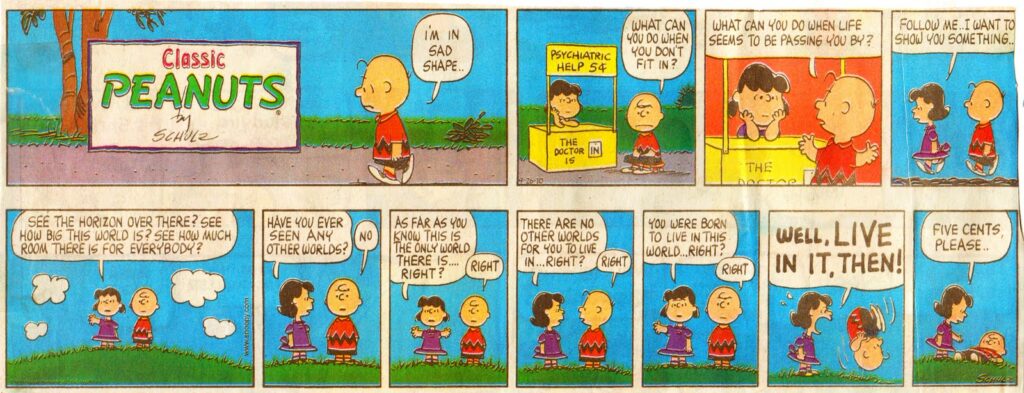Foundational courses for the Ecumenical Institute were taught across the US and internationally in the 1960’s as part of the renewal of the local church for the sake of renewing society. The Religious Studies I (RSI) course provided a theological tooling primarily for laypersons. The Parish Leadership Colloquy (PLC), was designed for clergy families and lay leaders, combining RSI with the practical Local Congregation (RSIIIA) course, providing both theological and practical tooling for leadership in parish work.
THE THEOLOGICAL REVOLUTION
or Religious Studies I

The Religious Studies I (RS-I) curriculum focuses on basic spirit questions of the post-modern world: problems of authentic self-understanding, decision making, vocational significance, human relations and creative participation in society. The objectives of the course were: (1) to study the shifts that have occurred in the 20th century understanding of the meaning of humanness, and (2) to enable participants to think about who they are and how they can involve themselves in the present age. (By 1972 400,000 people in North America and 3,000 globally had participated in RS-I.)
The Church as social pioneer: “Finally, the social responsibility of the Church needs to be described as that of the pioneer. The Church is that part of the human community which responds first to God-in-Christ and Christ-in-God. It is the sensitive and responsive part in every society and mankind as a whole. It is that group which hears the Word of God, which sees His judgments, which has the vision of the resurrection. In its relations with God it is the pioneer part of society that responds to God on behalf of the whole society.”
~~ H. Richard Niebuhr
- Bergdall, Thomas, A Bare Bones Outline of Secular Christianity (2022)
- Collins Dawn, On Becoming a Practical Theologian, 2019
- Marshall, Gene, RSI Academy Edge: The Offense of the Gospel, January 1971
- Spanish RSI resources God lecture 4×4, Crisis of Faith paper, RSI Manual
- Korean RSI resources: RSI papers
- Kierkegaard, Soren, Sickness Unto Death
- RSI Purpose and Procedures
- RSI in a Nutshell
Lecture: The Question of God Lecture and 4×4 and notes (for printing)
God Lecture, Brian Stanfield, Spring 1976
Seminar: “The Crisis of Faith” by Rudolf Bultmann and 3-pages taught in the course.
Other resources:
- The Nature and Existence of God, H.R. Niebuhr
Gene Marshall: How do you talk about G-O-D? ![]()
Lecture: Christ Lecture, outline (for printing) and 4×4Context for the Christ lecture: Poem “A New Heaven and a New Earth” by D. H. LawrenceSeminar: “You Are Accepted” by Paul Tillich with lesson plan (for printing)
Other resources:
- Mathews, Joseph, The Christ of History
- Gogarten, “The Dynamics of ‘Jesus the Christ is Lord’“
- Christ Lecture Preparation Questions, November 1975
“Requium for a Heavyweight” was the Saturday Night film used to ground the Theological perspectives introduced in the course using the Artform Discussion Method. Sample questions used in film conversations can be found here.
You can rent and watch the movie on Amazon prime: https://www.amazon.com/Requiem-For-a-Heavyweight/dp/B001NLWVIY.
Note: The Theatrical release which was used in the course had a significantly different ending from this version of the film. See: https://www.imdb.com/title/tt0056406/alternateversions
Specifically “The VHS release adds an additional scene (@ 1 minute 11 seconds) which was cut from both the theatrical and DVD releases. [Since the DVD restores the original sequence at this point, and significantly changes the emotional focus of the ending, the DVD is preferable to the VHS release.] As Mountain ascends (both literally and figuratively) to the wrestling ring, the deleted scene has Maish warning the newbie who wants to sign a boxing contract replacing Mountain to “Go home!” instead of starting a career in which there are only eight champions and everybody else is a loser. The VHS also cuts medium shot in which the referree says, “Come on, Mountain, let’s get this show on the road!” and, more significantly, the closeup in which Mountain makes the crucial decision to embrace his humiliation and starts his warwhoop dance around the ring.”
Lecture: The Church Lecture, 4×4 and Notes (for printing)
Seminar: “The Responsibility of the Church for Society” by H.R. Niebuhr. Seminar was done on the last section, “The Church as Social Pioneer“.
Other resources:
- Grow, Nan, The New Church, November, 27, 1974
- Cock, John, Passion in RSI Recruitment, North American Presidium, EI: Chicago, March 17, 1972
- Pierce, Joseph, Passion in Pedagogy, EI: Chicago, February 26, 1971
- RSI introduction,, schedule, and Intellectual methods for RSI pedgogy
- RSI Seminar Orchestration Chart (for printing)
- RSI conversations on Guernica and movie
- RSI International Training Manual
- RSI Short Courses (1974) and for printing
- RSI Manual (for printing)
The Parish Leadership Colloquy (PLC)
After teaching RSI courses, an emphasis on teaching church leaders was discerned, resulting in the creation of the Parish Leadership Colloquy. It was a combination of two courses: Religious Studies I (RS) and The Local Congreation (RSIIIA) for church leaders. It was orginally taught in the Faith and Life Community as The Parish Ministers Colloquy to address the need for a group ministry approach toward the church renewal. In 1973 a PLC Review was done at the summer program, a new PLC construct was created, and a PLC lecture given.
RSIIIA LOCAL CONGREGATION
An analysis of the new image of the Church as mission in history. The interrelatedness of the parish, local congregation, and cadre are examined in depth. Practical models are forged in workshops on witnessing and justing love, worship, study and enabling discipline. Rational Objective: To bring clarity to the ultimate purpose of the Church, i.e., to increase love of God, neighbor and self. Existential Aim: To deepen the resolve of the Church to bear the weight of fully loving God and neighbor.
- Parish Ministers Colloquy, Austin
- Parish Leadership Colloquy, New Construct
Somewhat of a shorthand version of RSI:

